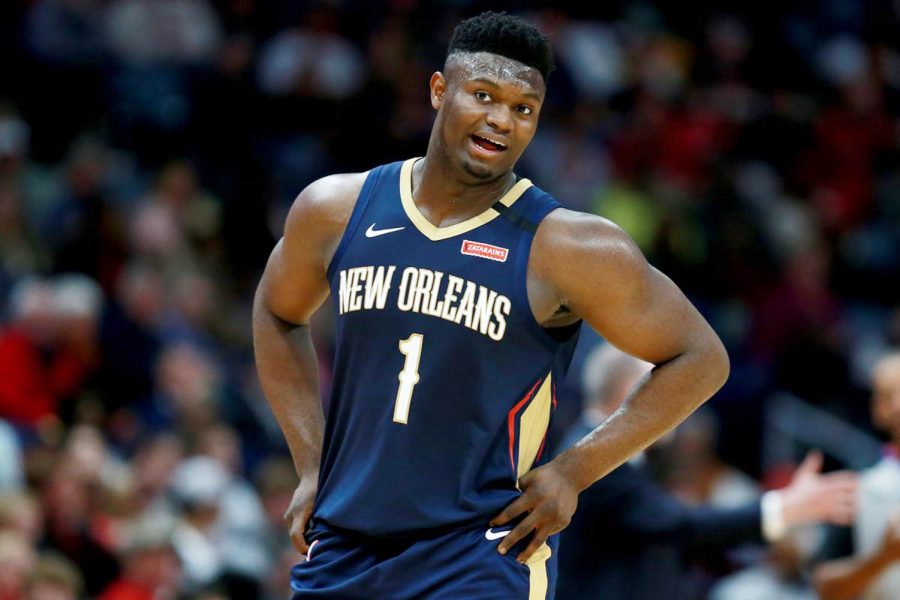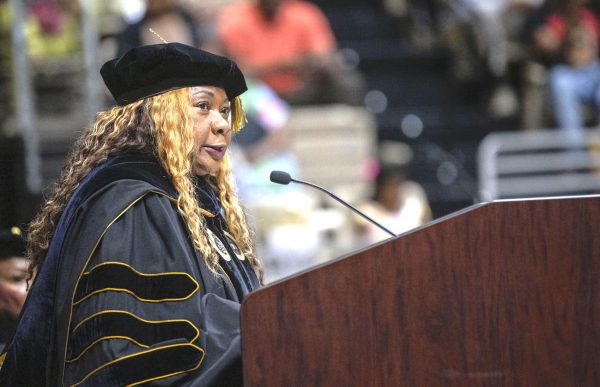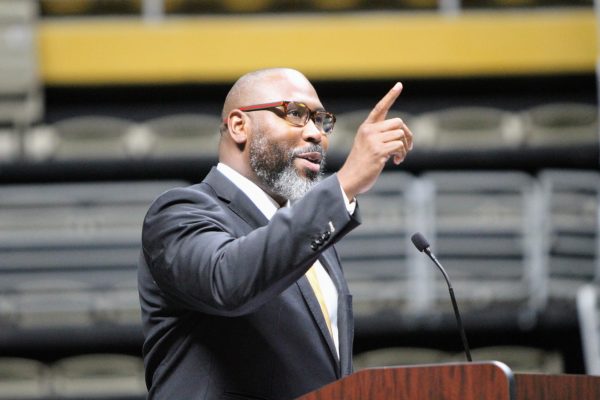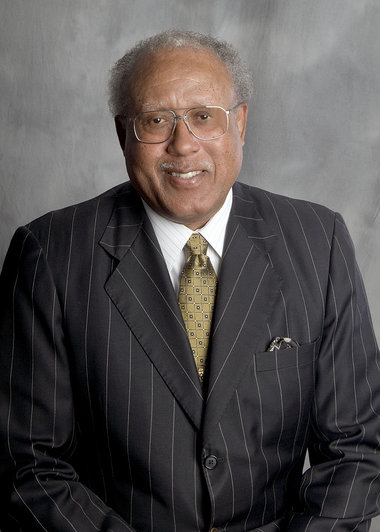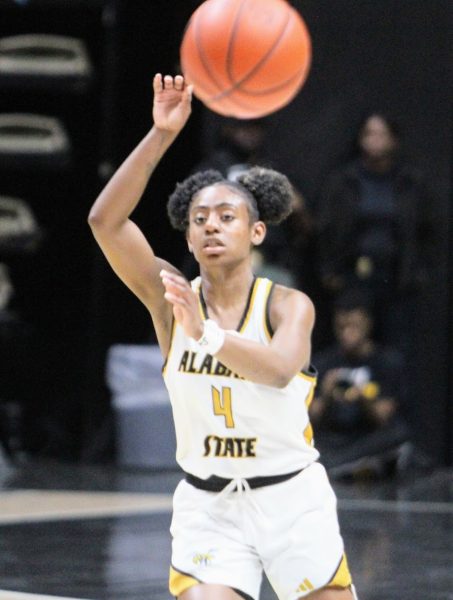Zion Williamson’s injury may set the standard for load management
Photo by Sean Gardner/Getty Images
Williamson’s first injury as a pro was less visceral but more severe, keeping him out the first three months of the NBA season as anticipation mounted for one more the most awaited debuts in league history.
February 6, 2020
As Zion Williamson begins his NBA career, many fans are excited to see how he will adjust to the NBA. The Duke alumnus tore his right meniscus during the preseason, and what was expected to be a short break grew into almost a three-month break that lasted until his Jan. 22 game against the Spurs. Although we are all happy to see him back, especially after having to readjust how he walks and runs, the question remains what is to come in the future?
NBA front offices and players have taken a more conservative approach when it comes to taking care of their bodies by giving 100 percent only when necessary, which is primarily in the postseason. This practice is called “load management,” a method that many NBA players have used in past years. Teams who have clinched playoff berths often choose to rest key players or those players who have sustained significant injuries that may cause trouble in the future, for the last 3-5 games of the regular season. However, load management became a problem when stars like LeBron James, Kawhi Leonard, and others began to miss games in the beginning and middle of the season to preserve their bodies for the postseason. While this garnered NBA fans’ attention, the league itself drew the line when stars began to miss televised games.
The NBA is actively working to find a common ground, where players and the league office are both satisfied. So far, there has been some progress, but Zion’s case has a glaring difference from the aforementioned; his career has barely started. The concept of load management is spreading to players who haven’t even been in the NBA for more than three years. We never expected players who have proved nothing on the professional level to be treated like seasoned veterans, but the front offices of the franchises are taking the same ultra-conservative approach the stars are, and we cannot do anything about it. Fans and league executives have complained, but that has not changed the actions of the team. You can reference the postgame interview with Los Angeles Clippers’ coach Doc Rivers when a reporter asked him about Leonard sitting out due to injury (as listed on the injury report) to which he replied, “Oh no, he’s fine.” That led to the Clippers being fined $50,000 as USA Today reported, “statements, including by head coach Doc Rivers, were inconsistent with Leonard’s health status.”
All of this is coming during a time where the NBA is considering shortening the season schedule to combat the load management epidemic. Commissioner Adam Silver finds himself between the fanbase that he wishes to grow and the individual franchises who will serve themselves before anyone else. One of the topics of discussion with the collective bargaining agreement on site is shortening the regular season to 70 games. Outside of the potential 20 percent pay cut players and coaches have to make, the proposal has received positive reviews. The overall effort is smart, and I admire the work to find a middle ground, but as Jalen Rose said during the ESPN morning show Get UP!, “It’s sad to me that a guy this young…will probably never play 82 games in a season.”


